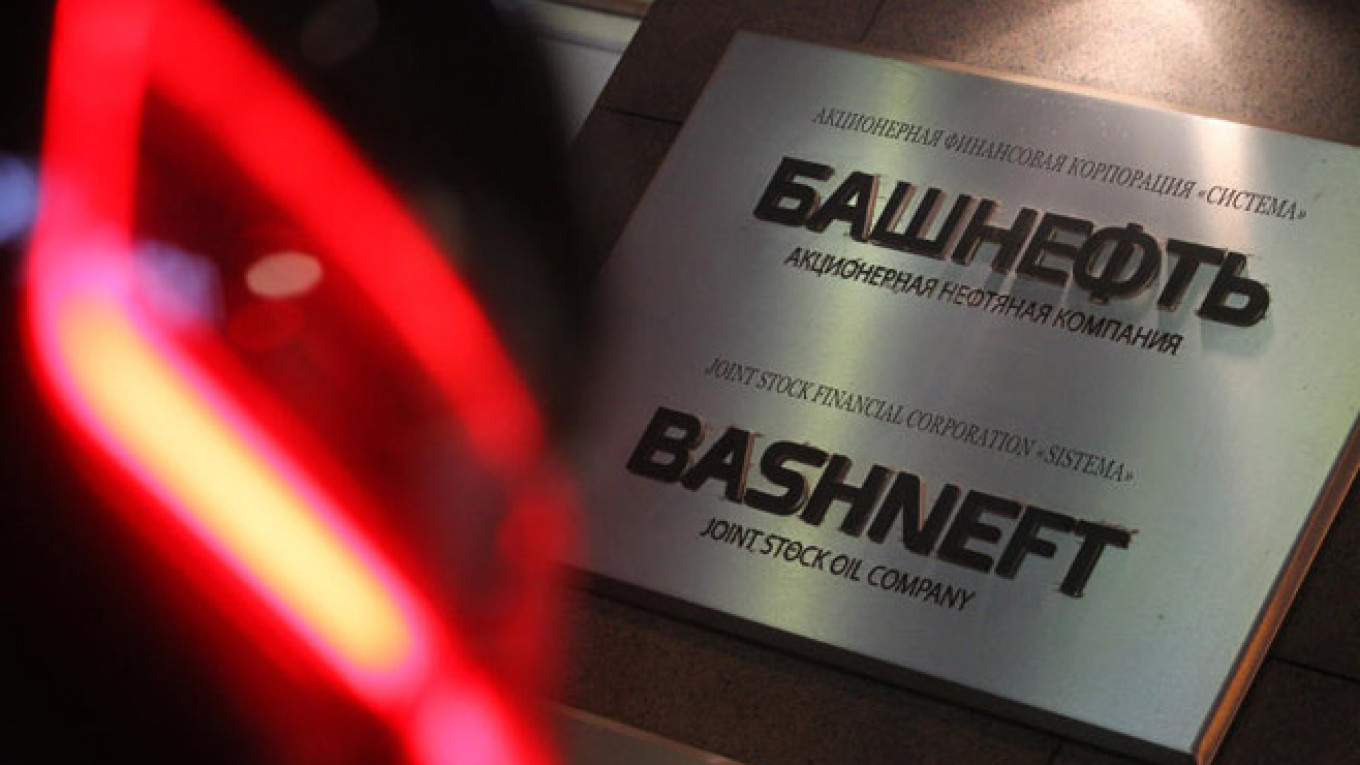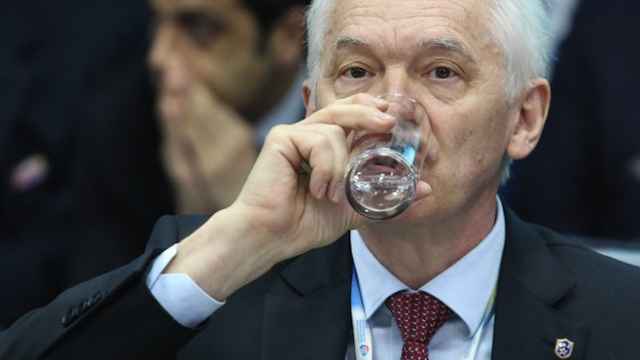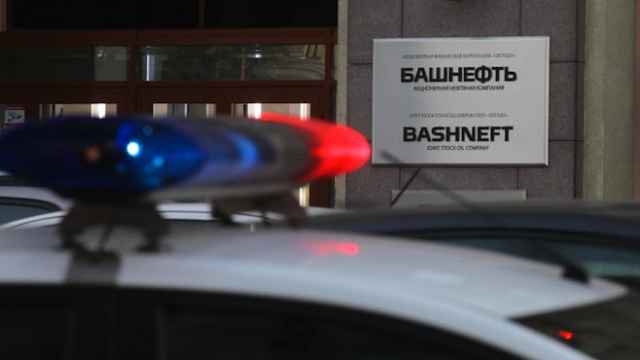A Moscow court's decision to expropriate shares in oil firm Bashneft from a company owned by a Russian billionaire may not be the final word in the case, according to investigators cited by news agency Interfax on Wednesday.
The court in October ruled that Bashneft had been illegally privatized and seized a 71.6 percent stake in the oil firm from Vladimir Yevtushenkov's Sistema holding company. The case collapsed Sistema's capitalization, placed Yevtushenkov under house arrest, and undermined investor confidence in Russia.
But a representative of the investigation said Wednesday that "a part of the shares did not fall under the arbitrage verdict. Therefore the full damages [to the state] have not been repaid." Interfax reported.
Sistema's shares in Bashneft were frozen by a court as part of the investigation earlier this year. But one day before the freeze, a Sistema subsidiary, Sistema-Invest, sold off some of its shares in a short term repo deal. As a result, Sistema-Invest still owns a 2.6 percent stake worth around 5 billion rubles ($90 million) — which investigators plan to pursue through the courts, according to news agency RBC.
Bashneft on Wednesday said it had received official notification that Sistema's 71.6 percent stake had been transferred to state ownership, the TASS news agency reported.
Soon after, Economic Development Minister Alexei Ulyukayev advocated re-privatizing the packet: "We believe that it [Bashneft] should be included in the privatization plan," he was quoted by RIA Novosti as saying.
Big Russian buyers have queued up to disavow interest in the Bashneft stake. Energy magnate and Kremlin ally Gennady Timchenko, along with Russia's two biggest oil firms, state-owned Rosneft and privately run LUKoil, all denied interest in buying Bashneft, according to Reuters and TASS.
The government's massive privatization program, proposed in 2010, has struggled to move forward amid squabbles over timing and sale-revenue targets. U.S. and EU sanctions over Moscow's hand in the Ukraine crisis this year cast further doubt on the sales by weakening Western appetite for Russian assets.
A Message from The Moscow Times:
Dear readers,
We are facing unprecedented challenges. Russia's Prosecutor General's Office has designated The Moscow Times as an "undesirable" organization, criminalizing our work and putting our staff at risk of prosecution. This follows our earlier unjust labeling as a "foreign agent."
These actions are direct attempts to silence independent journalism in Russia. The authorities claim our work "discredits the decisions of the Russian leadership." We see things differently: we strive to provide accurate, unbiased reporting on Russia.
We, the journalists of The Moscow Times, refuse to be silenced. But to continue our work, we need your help.
Your support, no matter how small, makes a world of difference. If you can, please support us monthly starting from just $2. It's quick to set up, and every contribution makes a significant impact.
By supporting The Moscow Times, you're defending open, independent journalism in the face of repression. Thank you for standing with us.
Remind me later.






